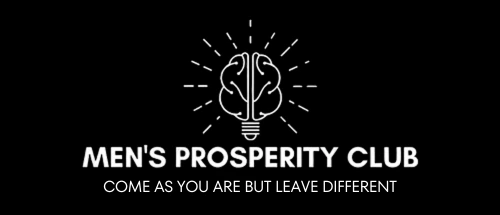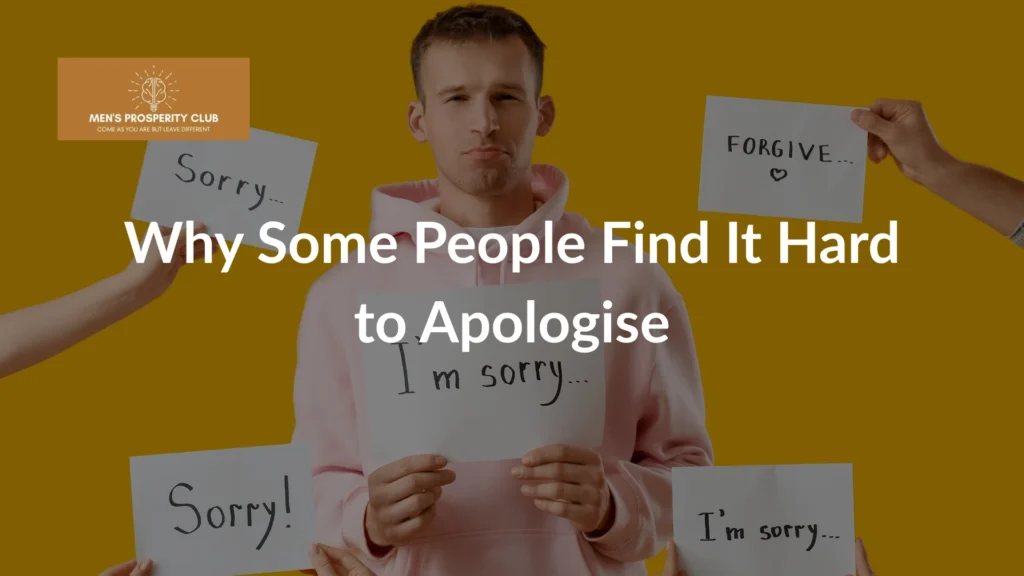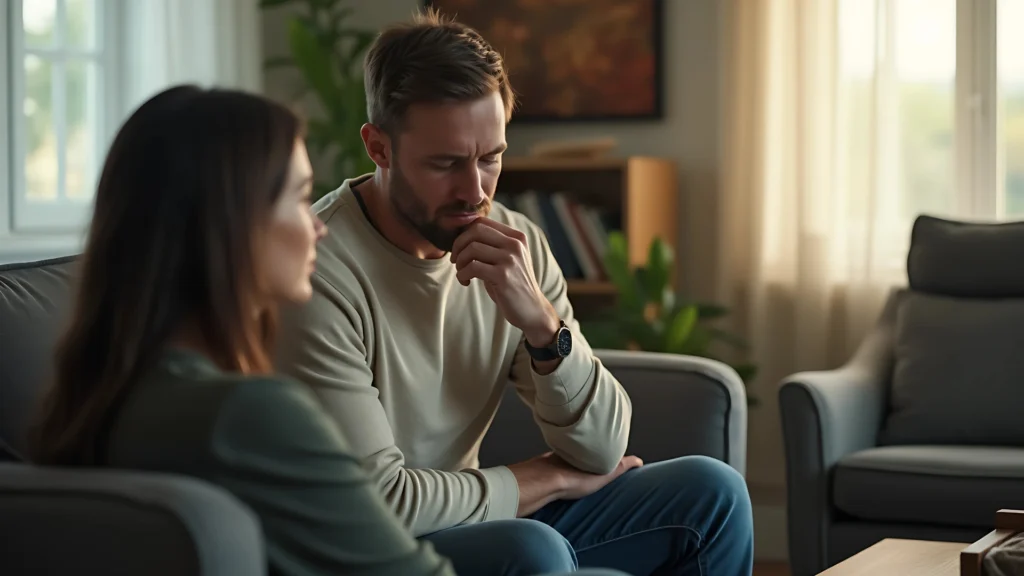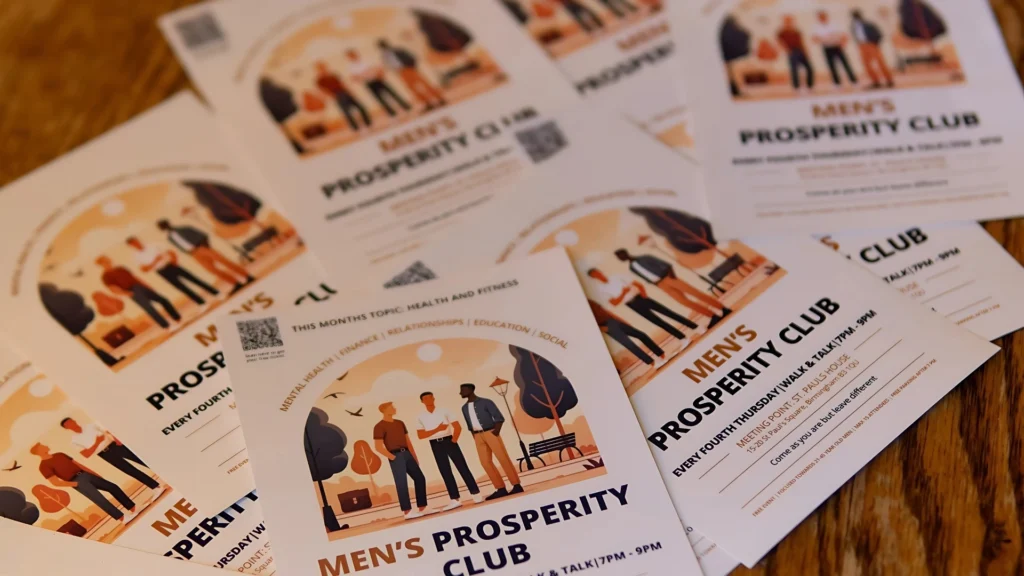This article is inspired by the blog of Men’s Prosperity Club Community Partner, John Kenny, an expert in personal development and relationship coaching. John explores the psychological and emotional reasons why some people struggle to apologise. He delves into how these dynamics can impact our relationships and offers insights on how we can overcome these barriers to create healthier connections with others. We’ll also touch on how the Personal Development workshop by Dr. Su Lee and the Men’s Prosperity Club can provide support in overcoming these challenges and improving communication skills.
1. The Boost It Gives to Their Self-Esteem
For some individuals, refusing to apologise can feel like an act of self-preservation. By withholding an apology, they may feel they’re asserting their independence or standing their ground, which in turn boosts their self-esteem. This psychological reaction stems from the belief that apologising is a loss of control, or a sign of weakness. For some, this act is perceived as admitting failure, and they cannot reconcile apologising with maintaining their sense of self-worth.
John Kenny explains that the reluctance to apologise is often linked to an individual’s sense of pride. Many people equate apologising with weakness, vulnerability or submission. For them, keeping a strong, self-assured persona is essential for their self-esteem. Apologising may feel like a failure to protect that image. When they withhold an apology, it helps them feel like they’re in control and not at the mercy of others’ judgments.
However, this mindset can be incredibly detrimental to relationships, as it creates emotional distance between individuals. While withholding an apology may offer temporary relief, it can lead to long-term resentment and conflict, weakening the bond between people who care about each other. Recognising this barrier and learning to be vulnerable can go a long way in breaking down the emotional walls people erect around themselves.
2. The Emotional Fallout of Apologising
Apologising requires emotional vulnerability—a quality that many people struggle to embrace. Accepting responsibility for one’s actions means admitting that you’ve hurt someone, which can evoke feelings of guilt, shame and emotional discomfort. For some, this is simply too overwhelming and apologising becomes a source of dread rather than an act of healing.
John Kenny suggests that people who avoid apologising may do so because they cannot manage the emotional fallout that comes with it. Admitting wrongdoing forces them to confront their own imperfections, and this emotional exposure is often unbearable. The vulnerability that an apology requires can feel like a betrayal of their own defences.
The fear of being perceived as “weak” or “flawed” can create a mental block, making it impossible for them to even consider apologising. They may fear that by admitting fault, they are opening themselves up to further judgment or criticism. The emotional discomfort of admitting a mistake can feel like too much to handle, and so they avoid apologising entirely.
In relationships, this reluctance can result in unresolved issues, growing resentment, and emotional distance. While it may seem easier to avoid vulnerability, embracing it can lead to deeper understanding, connection and healing.
3. Learned Behaviour and Childhood Experiences
The way we handle apologies often stems from the way we were raised. John Kenny points out that some individuals grow up in environments where apologies were rarely offered, or were only used as a way to placate others. When children witness adults failing to apologise or confront their mistakes, they internalise these behaviours and may replicate them in adulthood. This is particularly true if they were raised in environments where mistakes were never acknowledged and problems were swept under the rug.
For some, the experience of being forced to apologise frequently in childhood—sometimes even when they weren’t at fault—can lead to a negative association with the act of apologising. If apologies were used as a tool for control or manipulation in their early years, they may grow up with a deeply ingrained aversion to apologising, associating it with guilt, shame or powerlessness.
Others may have witnessed parents or caregivers who failed to model healthy conflict resolution strategies. In these situations, issues were never addressed directly, and apologies were either nonexistent or half-hearted. This can create a cycle where the individual never learns how to offer a genuine apology. Instead, they may shut down emotionally or avoid taking responsibility for their actions altogether.
John Kenny suggests that understanding how childhood experiences shape our current behaviours is crucial to breaking these negative patterns. Recognising these learned behaviours can help individuals reframe their approach to apologies and start cultivating healthier, more authentic ways to communicate.
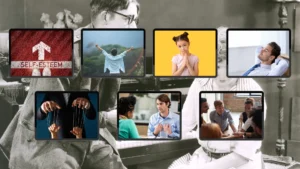
4. Stress Response: Fight, Flight or Freeze
When faced with emotional stress, our bodies instinctively respond in one of three ways: fight, flight or freeze. These responses are designed to help us survive in threatening situations, but they can often hinder our ability to engage in productive conversations, particularly when it comes to apologising.
For some individuals, their emotional reaction to conflict triggers the fight response. They become defensive, argue their case or refuse to accept any blame. This often results in a heated exchange where neither party feels heard, and the underlying issue remains unresolved.
Others may respond with the flight response, avoiding the situation altogether. This could manifest as physically walking away, changing the subject, or emotionally withdrawing from the conversation. By evading the need to apologise, they believe they’re protecting themselves from emotional discomfort.
Some individuals freeze when confronted with a conflict. They may become overwhelmed, unable to speak or respond, and essentially shut down emotionally. In these cases, the person may want to apologise but cannot bring themselves to do so because their brain is overwhelmed by stress.
John Kenny highlights that these stress responses are automatic and not always under our conscious control. However, through emotional awareness and personal development, individuals can learn to manage these reactions and respond to conflict with more composure. This includes learning how to apologise with sincerity and authenticity, even in stressful situations.
5. Manipulation, Power, and Control
For some people, refusing to apologise is a deliberate tactic to maintain power and control in a relationship. John Kenny explains that these individuals often view vulnerability as a weakness, and apologising can feel like relinquishing control. The desire to maintain the upper hand in relationships may lead them to manipulate the situation to avoid taking responsibility for their actions.
In extreme cases, individuals may engage in gaslighting—a form of psychological manipulation where they make the other person doubt their reality, often in an effort to avoid accountability. For example, they may twist the narrative, making the other person believe they’re overreacting or that the situation never happened in the first place.
John Kenny suggests that individuals who use manipulation to avoid apologising are often acting out of deep-seated fears and insecurities. Their need to control the situation is rooted in a desire to protect themselves emotionally, even if it means harming others in the process. Learning to break free from these patterns and take responsibility for their actions is crucial for healthier, more balanced relationships.
6. A Fear of Being Vulnerable
Apologising requires a level of emotional vulnerability that many people find difficult to embrace. For individuals with low self-esteem or past emotional trauma, vulnerability can feel like a threat to their sense of identity or safety. As John Kenny explains, apologising means opening oneself up to judgment or criticism, which can be an unsettling prospect for many.
This fear of vulnerability often stems from unresolved emotional issues or a history of rejection, which makes apologising feel like an unbearable risk. For these individuals, the act of apologising may seem like an invitation for further emotional harm, making it something they try to avoid at all costs.
7. Cultural and Societal Factors
In some cultures, apologising is seen as a sign of weakness or submission. Individuals raised in these environments may internalise the belief that admitting fault is dishonourable or shameful. This cultural conditioning can make it particularly difficult for them to apologise, even when they know it’s the right thing to do.
John Kenny also notes that societal pressures around masculinity can exacerbate this issue. The idea that “real men don’t apologise” or that apologising is a sign of emotional fragility can prevent many men from expressing regret or taking responsibility for their actions. This belief can create significant barriers to emotional expression and make it harder for these individuals to build meaningful, trusting relationships.

How Dr. Su Lee’s Personal Development Workshop Can Help
If you or someone you know struggles with the act of apologising or expressing vulnerability, it’s important to recognise that these behaviours are often deeply ingrained and can take time to change. The Personal Development workshop by Dr. Su Lee offers valuable tools and insights to help individuals build emotional intelligence, improve communication skills, and develop healthier relationships.
John Kenny advocates for the transformative power of emotional growth, and the Personal Development workshop by Dr. Su Lee provides an excellent opportunity for individuals to explore their emotional barriers, improve their self-awareness, and ultimately learn how to navigate difficult conversations, including those that require an apology. By learning to approach conflict with humility and empathy, participants can transform their relationships and cultivate a more fulfilling life.
The Men’s Prosperity Club also provides a supportive community for men who are looking to improve their personal development. With a focus on emotional intelligence and empowerment, the Club’s resources can help men overcome the obstacles that prevent them from apologising and foster deeper, more meaningful connections with others.
Final thoughts: Why Apologising Is Worth the Effort
It’s clear that there are many reasons why some people find it hard to apologise. However, it’s important to remember that apologising isn’t just about admitting fault—it’s about building trust, empathy, and mutual respect. When we apologise sincerely, we create opportunities for growth, understanding, and stronger relationships.
For those who struggle with apologising, it’s important to recognise that these patterns can be changed with the right support and personal development tools. By embracing vulnerability and learning to communicate more effectively, individuals can become more confident in their ability to navigate conflict and offer meaningful apologies.
Take the first step today towards personal growth and emotional mastery by exploring the workshops and resources offered by Dr. Su Lee and the Men’s Prosperity Club. By developing your emotional intelligence, you can transform your relationships and create a more fulfilling, authentic life.
